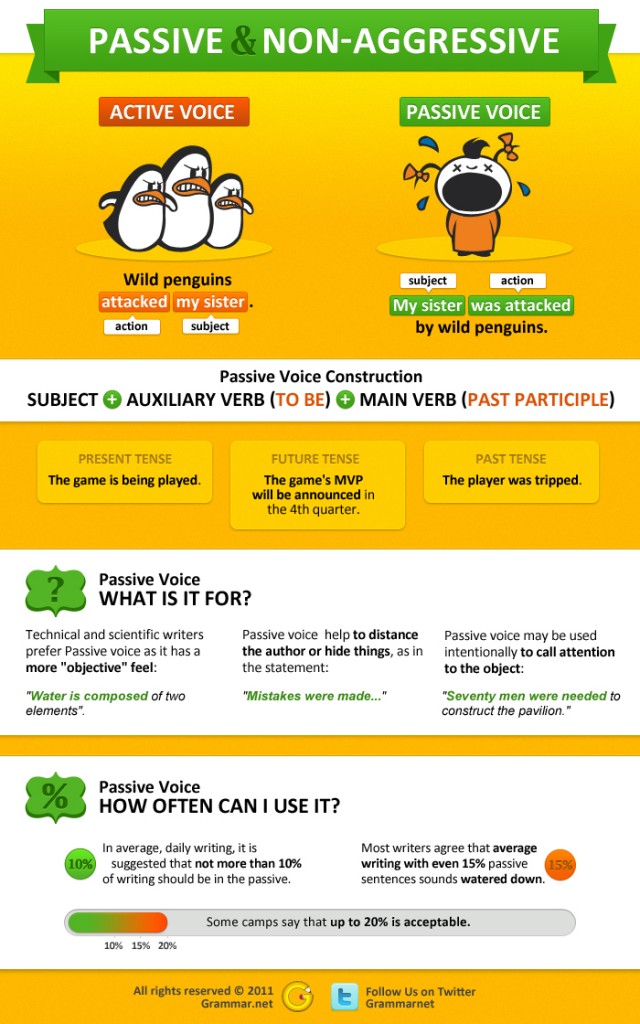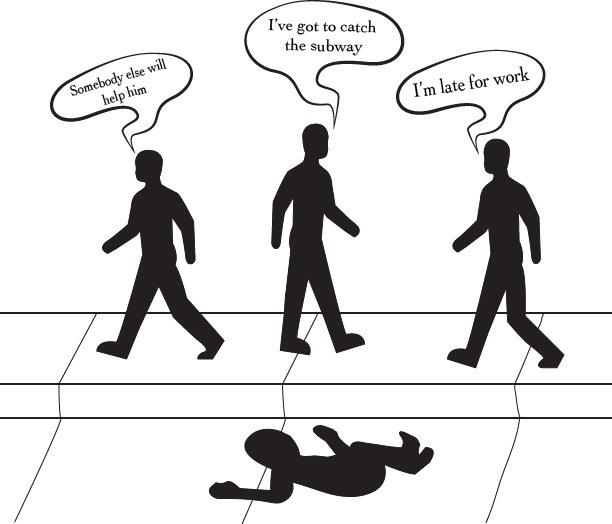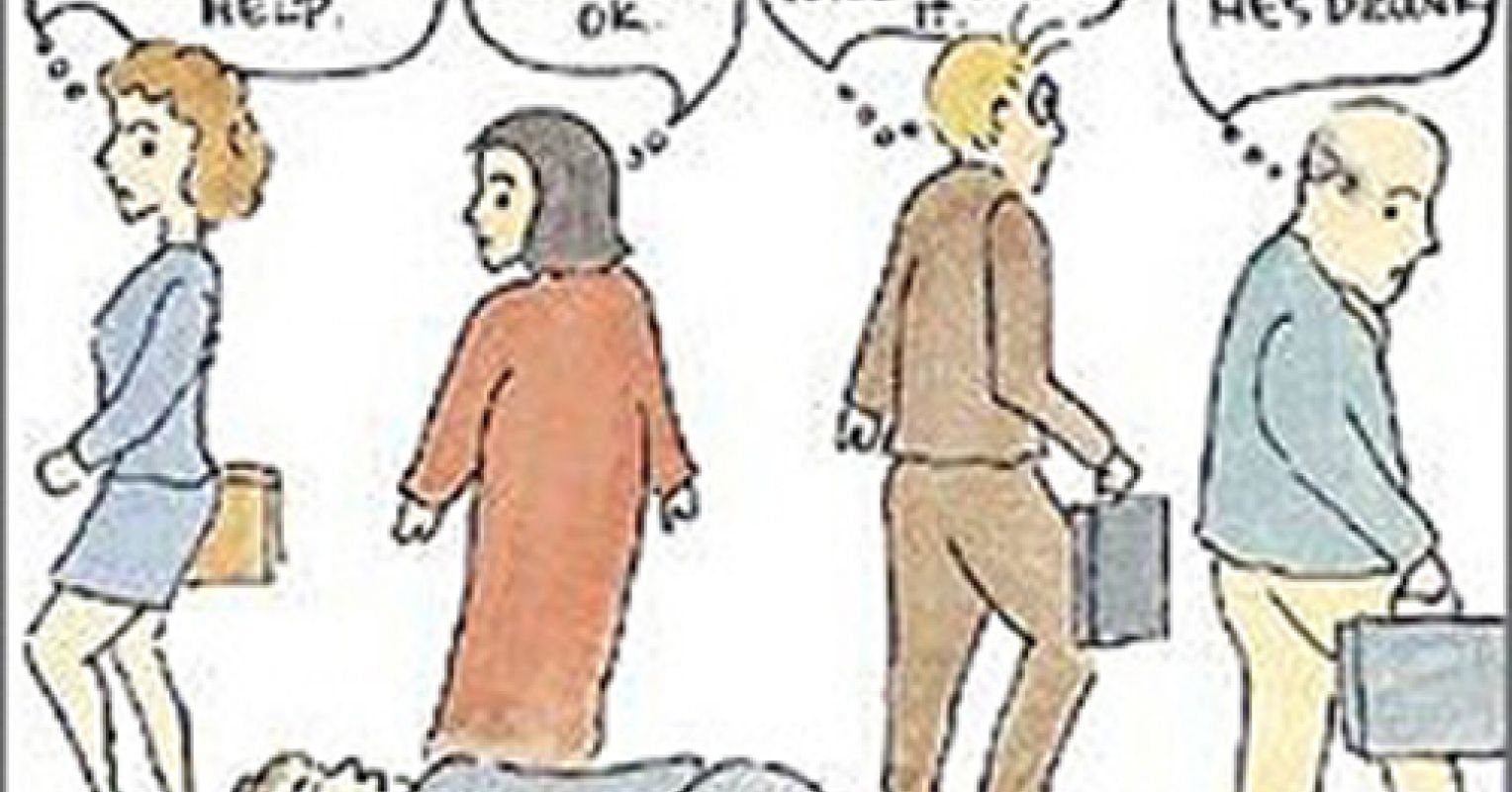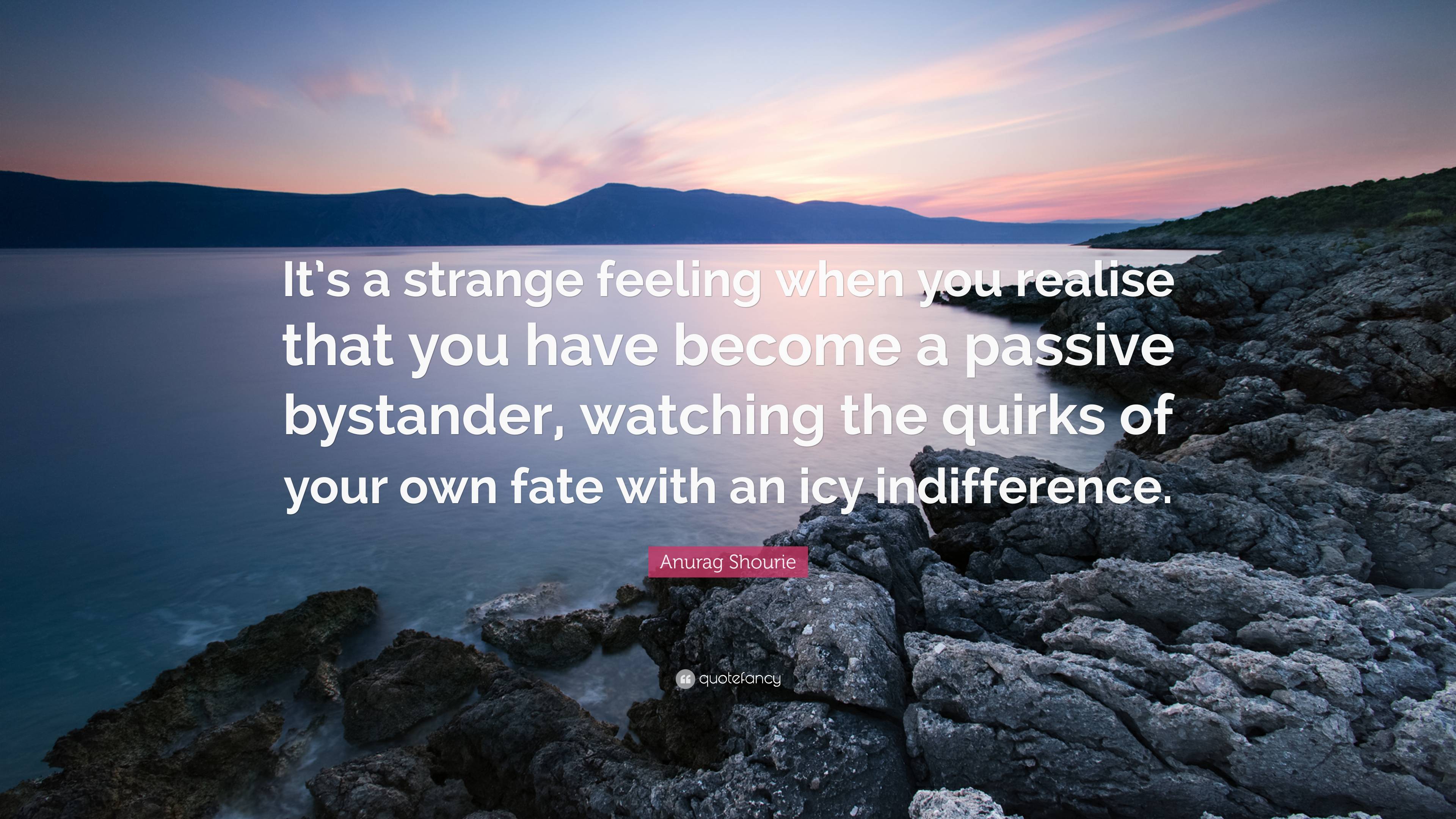
Bystander vs Upstander Which Will You Be? Bullying Recovery Resource Center
Passive bystander reactions have also been shown to increase with age (Palmer, Rutland, & Cameron, 2015; Trach et al., 2010). Encouraging proactive bystander responses to bullying is a crucial component of successful anti-bullying programs (Abbott, Cameron, & Thompson, 2020; Polanin, Espelage, & Pigott, 2012).

Passive and nonaggressive voice Grammar Newsletter English Grammar Newsletter
The bystander effect occurs when the presence of others discourages a person from intervening in a situation that is, or may be, an emergency. Latané and Darley's ground-breaking experimental.

Bystander Intervention Month Wellness
Passive Bystanders; Active Bystanders ; What is a Passive Bystander? The University of New Mexico defines passive bystanders as a bystander "who observes but does not intervene in any way." Passive bystanders witness an incident but do not step in, speak up or do anything in response. Examples of being a passive bystander:

Causes of the Bystander Effect Deepstash
Be an Active Bystander. We can all be bystanders. Every day events unfold around us. At some point, we will register someone in danger. When this happens, we will decide to do or say something (and become an active bystander), or to simply let it go (and remain a passive bystander).

Passive in English Vocabulary Home
There are two major factors that contribute to the bystander effect. First, the presence of other people creates a diffusion of responsibility . Because there are other observers, individuals do not feel as much pressure to take action. The responsibility to act is thought to be shared among all of those present.

10 Things You Can Do as a Bystander Psychology Today
A bystander is a person who observes a conflict or unacceptable behavior. The observed behavior may be serious or minor, one-time or repeated, but the bystander knows that the behavior is harmful or likely to make a situation worse. This person may be in a position to discourage, prevent or interrupt unacceptable behavior.

What Is Passive Aggressive Behavior? (And How To Deal With It) What is passive aggressive
PASSIVE BYSTANDER definition | Meaning, pronunciation, translations and examples

Anurag Shourie Quote “It’s a strange feeling when you realise that you have a passive
One answer comes from social psychology: the bystander effect. First described by John Darley and Bibb Latané in 1968, the phenomenon refers to people's failure to act in emergency situations when they're part of a group—the belief that "someone else will do it," leading to a diffusion of responsibility. That same concept, I believe.

Passive Aggressive Behavior Signs, Examples & Fixes Home
The bystander effect is a theory that emerged in the late 1960s. It suggests that onlookers will become less likely to help a person in need if other people are present. People may freeze, become.

Quiz Are You A Bully, Victim, Passive Bystander, Or An Active Bystander? Pearltrees
Take-home Messages. The bystander effect is a social psychological phenomenon where individuals are less likely to help a victim when others are present. The greater the number of bystanders, the less likely any one of them is to help. Factors include diffusion of responsibility and the need to behave in correct and socially acceptable ways.

The Bystander Effect Applied Social Psychology (ASP)
The bystander effect is a psychological phenomenon that causes people to be less inclined to help someone in trouble when there are other people gathered nearby. Being aware of this phenomenon and understanding why it occurs may spur people to act in moments of need, helping to keep more individuals safe.
/bystander-effect-1-56d5e33a3a0c4c1ba4e6e13512c7a413.gif)
What Is the Bystander Effect? How to Avoid Being a Passive Witness
We don't have to be bystanders. by Dr. Philip Zimbardo with Dr. Mel Ganus. It's summer 2022, a strange time to be alive, and an urgent time to learn how to SQUID. Despite all the good humans.

Bystander Intervention A Whole New Approach
The bystander effect, the reduction in helping behavior in the presence of other people, has been explained predominantly by situational influences on decision making. Diverging from this view, we highlight recent evidence on the neural mechanisms and dispositional factors that determine apathy in bystanders. We put forward a new theoretical.

Quiz are you a Bully, Victim, Passive Bystander, or an Active Bystander? Bullying, Quiz
The bystander effect, or bystander apathy, is a social psychological theory that states that individuals are less likely to offer help to a victim in presence of other people. First proposed in 1964 after the murder of Kitty Genovese, much research, mostly in psychology research laboratories, has focused on increasingly varied factors, such as the number of bystanders, ambiguity, group.

Bystander Effect What It Is and How to It
Bystander Effect: #N#
What Is the Bystander Effect?
#N#
Absorbing the Bystander Effect A Social Psychological Phenomenon
A Bystander is a person who observes a conflict or unacceptable behavior. It might be something serious or minor, one-time or repeated, but the Bystander knows that the behavior is destructive or likely to make a bad situation worse. An active bystander takes steps that can make a difference. First, an active bystander assesses a situation to.
- Windmills Of Your Mind Lyrics
- What Days Are Farmer Wants A Wife On
- Bubble Gum Flavour Ice Cream
- Monto Real Estate For Sale
- Farmer Wants A Wife 2020
- Update On Hunter Valley Bus Crash
- Watch 11 Minutes Documentary Online Free
- Australian 1 Dollar Coin 1985 Value
- Tyre Size Mercedes A Class
- Where To Buy Fondant Icing
